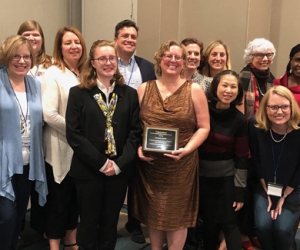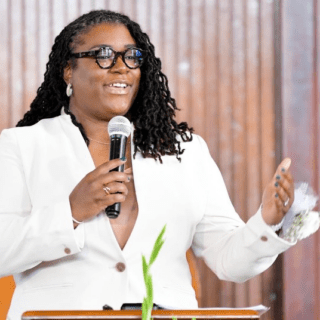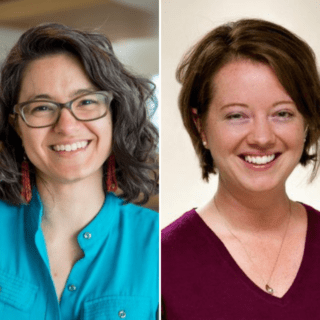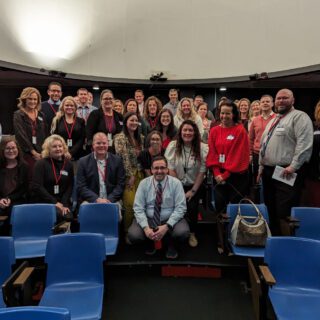
Prof. Maureen Porter Receives Outstanding International Educator Award
The Honor Recognizes Her Contributions in Contexts Around the World
For nearly 30 years, University of Pittsburgh School of Education faculty member Maureen Porter has been an anthropologist of education. She is driven to create research–practice partnerships for students, faculty, and the community in culturally responsive contexts around the world.
In recognition of her contributions to the field, Porter recently received the prestigious David Portlock Outstanding International Educator Award. The award is given by the Pennsylvania Council of International Education.
“The award is a big honor because it recognizes not just the innovative programs that I have developed but also how the programs have been sustained for so many years,” said Porter. “It shows that people can look to the Pitt School of Education as a destination for pedagogically sound and culturally inclusive international education programs.”
Porter and her colleagues have developed international education projects in locations all over the world. A central feature of her work is an emphasis on shared ownership and indigenous cultures.
In 1997, Porter pioneered the concept of international service-learning as a form of community engagement at Pitt. She led an international service-learning project that built many schools and community centers for villages in the Andes mountains.
Through field research conducted in Bolivia, she tied the findings to the indigenous Andean concept of “anyi.” Roughly translated, anyi speaks to an ongoing cycle of reciprocity. It differs from Western norms that concentrate more on who is giving, taking, and what people get.
“Our studies were not just about people. They were with people,” said Porter. “They were based on us responding to the community needs. The purpose was to have a long-term transformative impact not just on the community but also in the ways that they think of us as partners for social change.”
More recently, Porter completed a Fulbright project in Ethiopia that developed curriculum on Ethiopian history, customs, and traditions. The curriculum is for use in K–12 schools in the United States and anywhere else in the world, and it is meant to enrich cultural understanding.
And Porter continually advocates for intercultural education, including in projects with the World Bank, National Science Foundation, the Smithsonian, and the Global Fund for Women.
Porter and colleagues are currently working on several new initiatives. They are developing a “study away” program in Hawaii, internship programs in India, and research-practice partnerships in the Yucatán in Mexico and in Uganda.
As a professor, Porter has traveled the globe. Her first international experience came immediately after completing high school. As a Rotary Exchange student, she spent one year in West Germany in the 1980s.
Following that experience, she completed graduate studies at German universities, earned bachelor’s degrees in German and psychology from the University of Wisconsin-Madison, and a master’s degree in anthropology and a PhD in education from Stanford University.
The focus on research-practice partnerships has enriched the academic and cultural life of Porter.
“We have built a legacy and will continue it with new projects and formats,” said Porter.
Her experiences have changed the lives of students and local communities. They have also taken her to some high places—like the Andes mountains and the high plains of Ethiopia.




